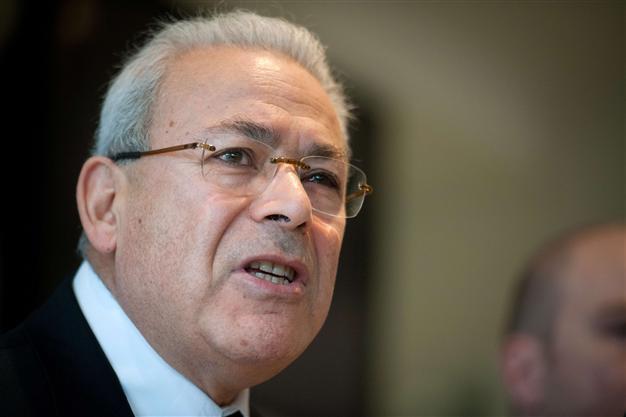Syria opposition leader rejects dialogue
BEIRUT - The Associated Press

Syrian National Council 's President Burhan Ghalioun holds a press conference in Paris, on March 1, 2012. AFP Photo
The leader of
Syria's main
opposition group on Friday rejected calls by former U.N. chief Kofi Annan for dialogue between the government in Damascus and the opposition, describing them as unrealistic.
In a telephone interview from Paris, Burhan Ghalioun told The Associated Press that Annan already has disappointed the Syrian people.
Annan, who has been appointed joint U.N.-Arab League envoy to Syria, has said his mission was to start a "political process" to resolve the conflict in the country. He is due this weekend in Syria where he will meet with Assad.
In comments made in Cairo on Thursday after talks with Arab League chief Nabil Elaraby, Annan warned against further militarization of the Syrian conflict and urged the opposition to come together with the government to find a political solution.
"I hope that no one is thinking very seriously of using force in this situation," Annan said. "I believe any further militarization would make the situation worse." Annan also said he would be making "realistic" proposals to resolve the conflict. He did not elaborate.
But Ghalioun blasted such statements as unrealistic.
"These kind of comments are disappointing and do not give a lot of hope for people in Syria being massacred every day," Ghalioun said. "It feels like we are watching the same movie being repeated over and over again." Syria's opposition is fragmented and suffers from infighting, but most factions reject talks with the government while the military crackdown continues.
The U.N. says more than 7,500 people have been killed in the past year since the revolt against Assad erupted in the country's south and engulfed the country. Activists put the death toll at more than 8,000.
The uprising began with largely peaceful protests, but faced with a vicious regime crackdown, it has become increasingly militarized.
The SNC is openly calling for outside military intervention, but the subject is controversial and divisive.
"Any political solution will not succeed if it is not accompanied by military pressure on the regime," Ghalioun said.
Ghalioun faulted Annan for "avoiding" any references to the essence of the problem, which is the regime's use of extreme military force to crush the protests.
"As an international envoy, we hope he will have a mechanism for ending the violence," Ghalioun said.
"My fear is that, like other international envoys before him, the aim is to waste a month or two of pointless mediation efforts," he added.
